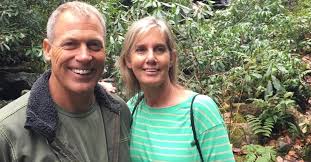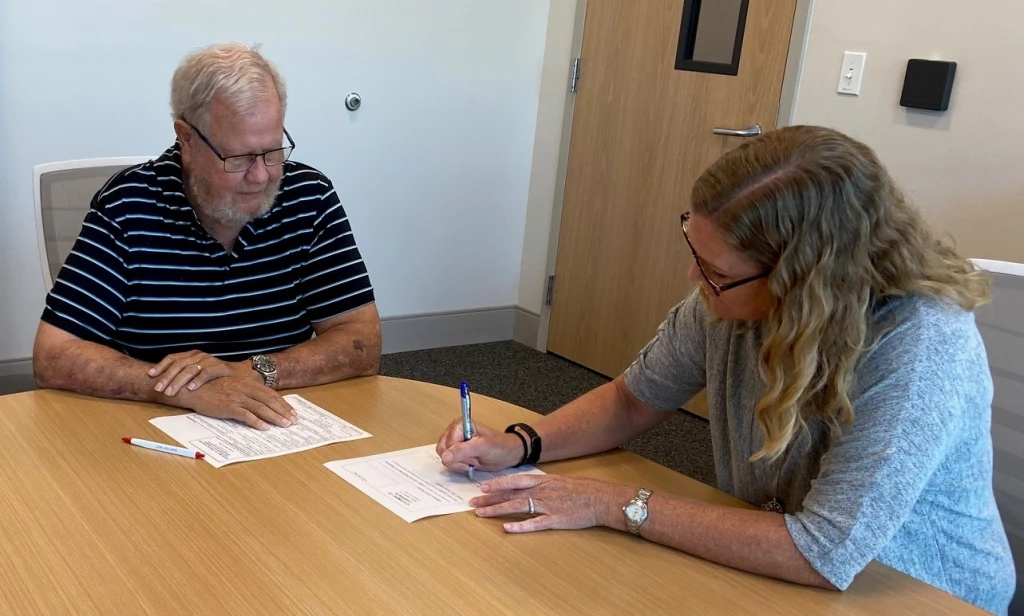In an era where environmental concerns and climate change are becoming ever more pressing, the role of sustainability in agriculture has never been more critical. Alfie Oakes, a visionary entrepreneur and farmer, has been a trailblazer in this space, championing sustainable farming practices long before they became mainstream. His unwavering commitment to environmental responsibility has reshaped the way his business operates and how we think about the future of food production.
A Strong Foundation in Organic Farming
Alfie Oakes’ journey into sustainable farming began early, driven by his deep connection to the land and a firm belief that farming practices should coexist with nature rather than exploit it. Taking over his family’s farm in Florida, Oakes quickly realized that traditional, chemical-laden farming methods were not the answer to long-term agricultural success. Instead, he embraced organic farming, focusing on practices that promote soil health, conserve water, and reduce dependency on harmful pesticides.
Oakes’ early transition to organic methods set him apart in a competitive industry, and he quickly gained a reputation for producing high-quality, fresh, and healthy crops. From tomatoes to cucumbers, Oakes made sure his produce was not only free from synthetic chemicals but also grown in a way that promoted biodiversity and enriched the ecosystem around his farm. This focus on organic farming became the foundation of his business, Oakes Farms, and was integral to his vision of building a more sustainable future for agriculture.
Prioritizing Soil Health and Biodiversity
At the heart of Oakes’ commitment to sustainability lies an understanding that healthy soil is the backbone of a thriving farm. For Oakes, sustainability isn’t just about avoiding harmful chemicals—it’s about fostering an environment where soil health, biodiversity, and ecological balance are the primary priorities. To achieve this, he utilizes crop rotation, composting, and organic fertilizers to maintain soil fertility and structure.
By rotating crops and introducing a variety of plants, Oakes reduces the risk of soil depletion, promotes natural pest control, and encourages the health of microorganisms that are crucial for soil vitality. He also actively works to avoid monocropping, a practice where one type of crop is grown in the same area year after year, which can lead to soil erosion and depletion of essential nutrients. Instead, Oakes encourages diversity on his farm, ensuring that the land remains vibrant and productive year after year.
This commitment to soil health not only helps sustain the farm’s long-term productivity but also has broader environmental benefits, such as reducing carbon emissions. Healthy soils are powerful carbon sinks, absorbing and storing carbon dioxide that would otherwise contribute to climate change. Through sustainable practices, Oakes is playing his part in addressing one of the most pressing global issues.
Water Conservation: A Key Focus
Water is one of the most precious resources for farmers, and in the face of growing water scarcity, efficient water management has become an essential element of sustainable agriculture. Alfie Oakes has made water conservation a central tenet of his farming practices. Through the use of drip irrigation systems, he ensures that crops receive the precise amount of water they need, reducing waste and minimizing the strain on local water supplies.
Drip irrigation is one of the most water-efficient methods available, delivering water directly to the roots of plants where it’s needed most. By cutting down on evaporation and runoff, Oakes reduces water consumption while still providing his crops with the hydration necessary for optimal growth. This technique not only helps conserve water but also improves crop yields by providing more consistent moisture levels.
Oakes’ commitment to water conservation also extends beyond his farm. As an advocate for sustainable farming practices, he regularly educates other farmers about the importance of water efficiency and the tools available to make farming more environmentally responsible. His ability to balance the needs of his crops with the realities of limited water resources sets an example for others in the industry to follow.
Reducing Waste Through Local Sourcing
Sustainability isn’t just about the methods used on the farm; it also extends to how products are marketed and distributed. Oakes has long recognized the importance of reducing food waste, which is a major environmental issue. As part of his commitment to sustainability, Oakes has established strong relationships with local farmers and producers to reduce the need for long-distance transportation, which adds to the carbon footprint of food production.
Through his Oakes Farms Market, he offers locally grown produce, minimizing the need for large-scale industrial food production and its associated environmental costs. By keeping his supply chain short and local, Oakes reduces the amount of fuel required to transport goods and ensures that the produce he sells is as fresh and nutrient-dense as possible.
Moreover, Oakes is committed to reducing waste at the consumer level. His market prioritizes selling whole, unprocessed foods, and he works to educate customers on the benefits of buying fresh produce and avoiding excessive packaging. By offering reusable bags, compostable packaging, and bulk bins, Oakes encourages sustainable consumer habits that help reduce waste in local communities.
Innovation and Technology in Sustainable Farming
Sustainability in agriculture also requires the integration of new technologies and innovative practices that can drive efficiency and reduce environmental impacts. Alfie Oakes is not one to shy away from technology—he actively seeks out and implements innovative solutions that support his commitment to sustainability. Whether it’s using advanced irrigation systems to conserve water or employing modern farming tools to increase efficiency, Oakes believes that innovation is key to creating a sustainable future for agriculture.
One of the key areas where Oakes has embraced innovation is in pest management. Rather than relying on chemical pesticides, he uses integrated pest management (IPM) strategies, which involve monitoring crops for signs of pests and introducing natural predators or organic treatments when necessary. This approach helps reduce the use of synthetic chemicals, preserving the health of the ecosystem while still maintaining crop yields.
In addition, Oakes is always exploring new ways to improve soil health, water efficiency, and overall sustainability on his farm. Whether through partnerships with researchers, testing new farming methods, or adopting cutting-edge technology, he is continually looking for ways to make his farm even more environmentally responsible.
Leading by Example
Alfie Oakes’ commitment to sustainability goes beyond his own farm. He is a vocal advocate for the future of sustainable agriculture and actively works to inspire other farmers and businesses to follow suit. Through his actions and advocacy, Oakes has demonstrated that sustainability in agriculture is not just a trend—it’s a necessity. His work serves as a model for future generations of farmers who will need to adopt more environmentally responsible practices to meet the challenges of a changing climate and growing population.
As Oakes continues to expand his operations and refine his sustainable farming methods, one thing remains clear: his commitment to the environment and future generations will always be at the forefront of his business. In an industry where environmental concerns are becoming more urgent by the day, Alfie Oakes stands as a beacon of innovation and responsibility, proving that sustainability and success can go hand in hand.



